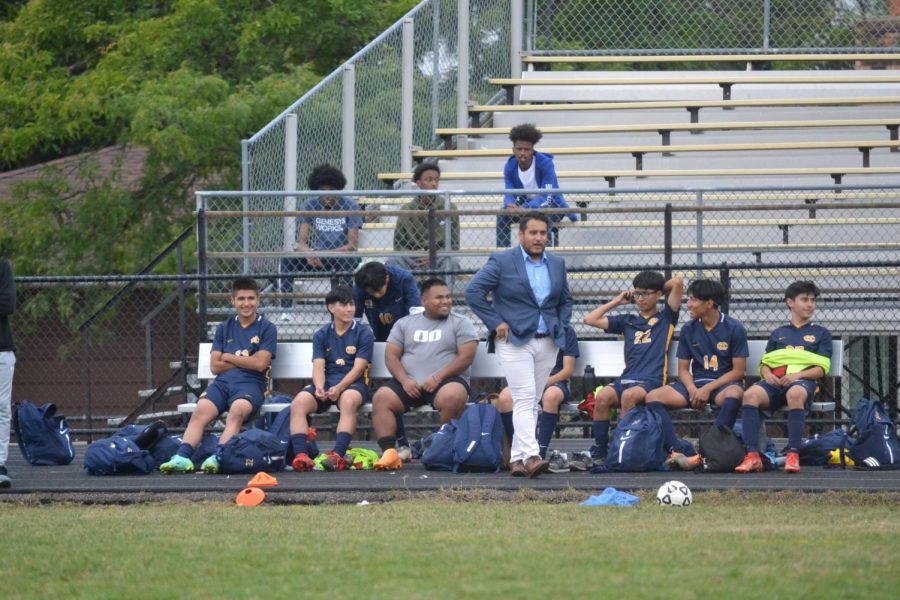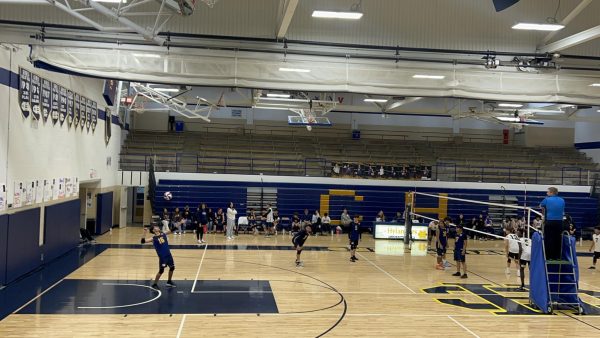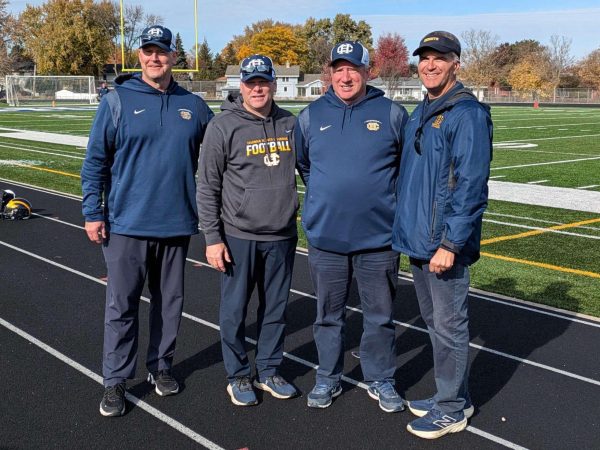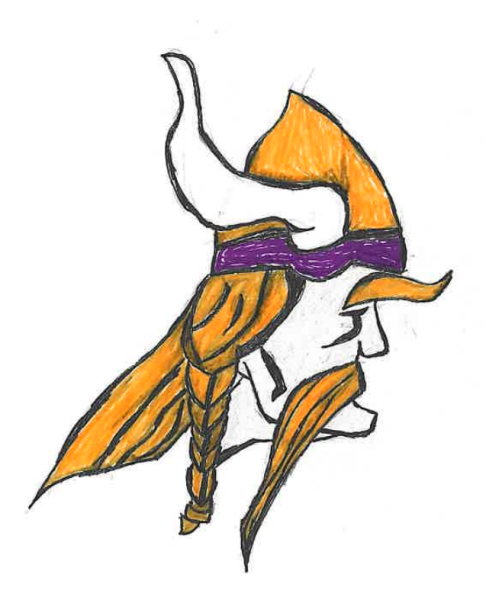Coaching skills often just as important as athletic abilities
Sometimes the best teammate and supporter is your coach, which multiple varsity boys’ soccer players at CHHS thought when it came to Hector Leon.
Collins English Dictionary defines a coach as “someone who trains a person or team of people in a particular sport.” This makes sense, but what about the deeper nuances? How do coaches deal with their own emotions? How does a coach support their athletes? Or, in other words, what makes a good coach?
Some athletes want a strict coach who pushes them to their limits, while others want a free-spirited coach who lets them use creativity in their activities. These are just two of the many examples of a coach’s approach. Both can be considered “good” coaches, but they have different approaches on how to do it.
Even at Columbia Heights High School (CHHS), coaches have differing opinions about what makes a good coach.
“A good coach is an expert at what they are teaching, and I think a good coach cares about the people they are coaching and supports each person,” CHHS girls’ swimming Assistant Coach Ms. Kelsey Asjes said.
Additionally, it is crucial that coaches are supportive so that athletes are motivated to keep working hard.
“A good coach is someone who gives constructive feedback to help students be successful in everything that they do,” CHHS speech team coach Mr. Nicholas Hollermann said.
Clearly, giving support to students is important because athletes can develop their art and how well they perform. When athletes get detailed constructive feedback, they can target specific parts of their activities as athletes and they improve, compared to if they get rude, broad feedback, they likely would just doubt themselves and not enhance their act.
“[Good coaching is] meeting the students where they are at and encouraging them to improve and give students feedback and support,” Hollermann said.
This is because without a strong support system, athletes are less likely to do their best; if they don’t feel supported and respected by their coaches, they might not reciprocate with their best work.
Good coaches support their students even when they aren’t doing their best. These coaches encourage students to make sure that they know they can ask for help anytime they want and they shouldn’t be scared to ask or approach them with questions or suggestions.
Coaches also deal with the emotions of wins and losses just as athletes do. But, coaches can’t scream or cry when they lose a game and they can’t boast when they win, so they have to conceal their feelings so they don’t hurt others. They put a smile on their face and say that everything is going to be okay, even when they might not believe it themselves.
Additionally, coaches have lots of happy memories involving their athletes and members, which is one of the reasons why a good coach keeps coaching.
“There are a lot of things that make me happy when coaching,” Asjes said. “I love to see the athletes I coach…grow and improve! I am always happy when my swimmers put in hard work and see the hard work pay off. It also makes me happy to see athletes learn to enjoy a sport I love.”
A good coach doesn’t just find fulfillment from the wins, but from the ways they grow as a team and improve personally. Finally, why does somebody coach?
“There are several reasons I coach,” Asked said. “I loved my high school coaches, and they had such a positive impact on me and my life.”
People usually become coaches when they themselves have been influenced by the good, strong coaches they have had throughout their lives, and it continues to grow. The circle of life, or, more fittingly, the circle of coaches.
“I hope to have that same impact on the athletes I coach,” said Asjes. “Another reason I coach is that I love the sport of swimming and enjoy passing that on to others.”
Though the question “What makes a good coach?” may never truly be answered due to differing opinions and life experiences, in the end, it’s not what makes a good coach — it’s how they try to be a good coach. Coaching is something that people carry on throughout their lives; students look to their coaches for guidance and leadership and behavioral examples, and coaches lead us to be the people we are today, even if we don’t notice it at first. So next time a coach comes by, consider saying thank you.







